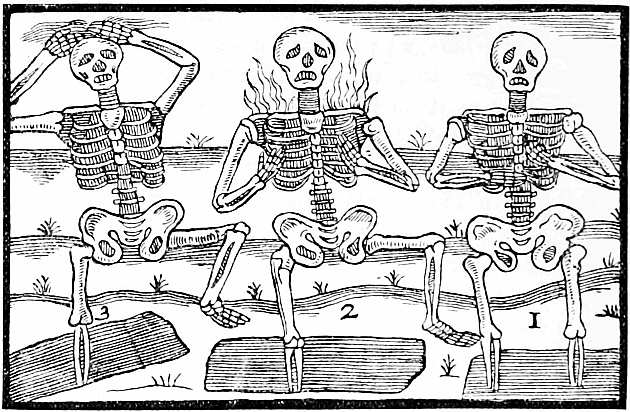Back in what we might call the glory days of the ‘War on Terror’ – by which I mean that handful of years in which various armchair warriors and big-thinkers tried to manufacture an ideology out of America’s post-9/11 trauma – there was this frequent refrain that the ‘problem’ with the Muslim world was that, unlike Europe, Islam had never had a Reformation. And with the recent resurgence of terrorism punditry, I’m hearing the same idea bandied about again.
The subtext was that the Reformation was that period in European history when people decided to start focusing on the individual and disentangling religion from the powers of the state. Put more forcefully, this was when people decided that they shouldn’t kill each other over religion or govern states according to ideas about what God had in mind for the End Times.
The irony of course is that if anything the Reformation was almost precisely the opposite of what I’ve just described. If we insist that the Muslim world has to follow this model, what’s happening right now actually looks fairly similar.
It is fair to say that the European Reformation ushered in one of the greatest – and arguably the greatest – period of religious extremism in the history of European Christianity. The seed of millennial fervor and theological perfectionism unleashed by Martin Luther in 1517 spurred a wave of ecstatic theocracies, totalitarian experiments, peasant wars, genocidal backlashes against each of proceeding and then a period of roughly 150 years in which Europe was wracked – with a few interruptions – by religious warfare that was as brutal and as totalizing as anything until World War II.
All of these wars had more earthy reasons of state, of course – economic factors, personal ambitions, proto-national dimensions and the rest. But religious conviction was a deep and shaping factor throughout. And as the 16th century unfolded, partisans on both sides of the religious divide began to believe with increasing fervor not only that God was on their side but that the final unfolding of history was happening in their own time and that their actions or inactions were part of it. All of which is to say that by any contemporary standard, things in the 16th and much of the 17th century were completely nuts and f’d up and based on this nuttiness people committed astonishing acts of cruelty and barbarism against fellow human beings.
It’s true that if you look back from the perspective of a century or two later you can see traces of the individualism and belief in liberty of conscience that we now place at the heart of Western civilization. But imagining any direct progression from one to the other is profoundly misleading. Indeed, it is probably not too much to say that most of what we now see as the legacy of the Reformation is in fact the outgrowth of its failure. After well over a century of ferocious bloodletting and political chaos, men involved in religion and statecraft began to feel their way toward a loosening if not a severing of the demands of the state on religion and religion on the state. And it was in this context that Europeans began to mine those threads of the early Reformation texts and ideas for themes consonant with the post-Reformation age. People tend to fix this date in 1648, the terminal date of the Thirty Years War. But it’s inklings went back into the early decades of the century and it only really took hold in the early 18th century.
The Reformation was a peculiarly European phenomena, not a stage of history. And I don’t know enough about the internal dynamics of Islam to know whether it’s likely to be undergoing some similar process of unfastening the mutual demands of religion and state. But if you did think that something similar might happen in Islam, with the Reformation’s mix of endemic, state collapse and extremism, this is probably what it would look like.
Of course, saying Islam needs a Reformation is silly on multiple levels. The European Reformation had no comparable shadow of Imperialism hanging over it. Nor did any contest with a rival world religion play a substantial role in its internal dynamics. And there are a hundred other differences, not least being that Islam isn’t Christianity and West Asia isn’t Europe.
More than anything we should be highly skeptical of fastening cheap philosophical fabric over things we barely understand and are in little position to control.






